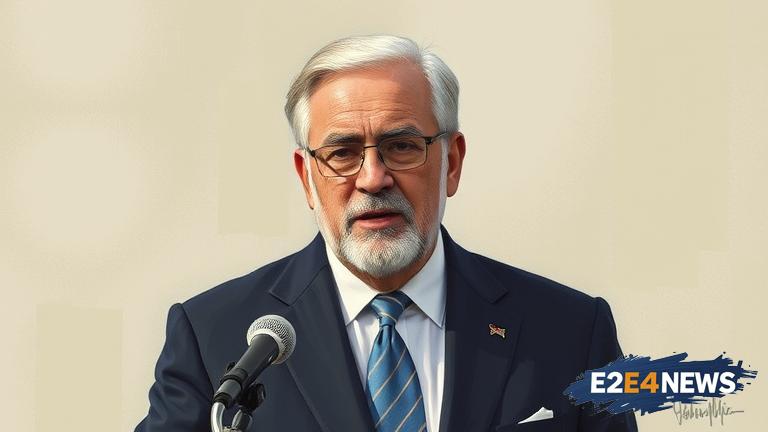In a significant escalation of diplomatic tensions, Australia has taken the drastic step of expelling the Iranian ambassador from the country. This move comes after Australia directly blamed Iran for being behind two antisemitic attacks that occurred on its soil. The attacks, which targeted Jewish communities, have been condemned by the Australian government, which views them as unacceptable and a threat to the country’s multicultural fabric. The decision to expel the Iranian envoy was made after a thorough investigation into the incidents, which reportedly uncovered evidence linking the attacks to Iranian operatives. Australia’s foreign minister emphasized that the country will not tolerate any form of terrorism or hate crimes, and it will take all necessary measures to protect its citizens and ensure their safety. The expulsion of the Iranian ambassador is seen as a strong message to Iran that such actions will not be tolerated. The Iranian government has yet to respond to the allegations and the expulsion of its diplomat. The incident has sparked widespread condemnation from Jewish communities around the world, who are calling for increased protection and solidarity in the face of rising antisemitism. Australia has a strong record of combating hate crimes and has pledged to continue working with international partners to address the issue of antisemitism. The country’s prime minister has assured the Jewish community of its commitment to their safety and security. Meanwhile, the international community is watching the situation closely, with many countries expressing concern over the escalating tensions between Australia and Iran. The United States, a key ally of Australia, has come out in support of the country’s decision, stating that it stands with Australia in its fight against terrorism and hate crimes. The European Union has also condemned the antisemitic attacks and called for calm and restraint in the region. As tensions continue to rise, there are fears of potential retaliation from Iran, which could further destabilize the region. Australia’s move is seen as a significant step in the global fight against antisemitism and terrorism, and it is likely to have implications for international relations in the coming days. The country’s actions are being closely watched by other nations, which are considering similar measures to combat hate crimes and terrorism. In the wake of the expulsion, there are calls for increased dialogue and cooperation between nations to address the root causes of antisemitism and extremism. The incident has also highlighted the need for greater awareness and education about the dangers of hate crimes and the importance of promoting tolerance and understanding. Australia’s Jewish community has welcomed the government’s strong stance against antisemitism, and there are hopes that the move will serve as a deterrent to potential perpetrators. However, there are also concerns about the potential backlash against Iranian Australians, who are calling for calm and restraint. As the situation continues to unfold, one thing is clear: the international community will be watching closely to see how events develop and what implications this will have for global relations. The expulsion of the Iranian ambassador is a significant development in the ongoing struggle against hate crimes and terrorism, and it is likely to have far-reaching consequences. In conclusion, the decision by Australia to expel the Iranian envoy is a strong statement against antisemitism and terrorism, and it underscores the country’s commitment to protecting its citizens and promoting tolerance and understanding.
